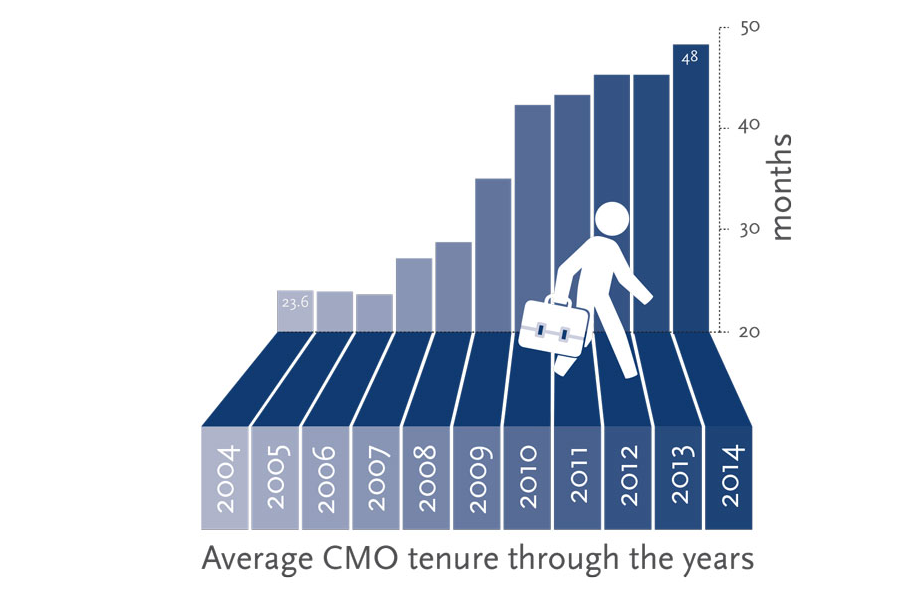The average length of time a CMO stays in their role has dropped to 44 months in the States, according to the Wall Street Journal.
Quoting research from firm Spencer Stuart, the WSJ said it was the first time the tenure had dropped over the past decade. In 2014 the tenure had been up to 48 months on average.
The study – which looked at 100 CMOs of big US brands – said the slip was due to people retiring, more mergers and acquisitions and a number of shuffles around.
“The intensity, the pressure and the demands on CMOs is admittedly unlike I’ve ever seen in my career,” said Greg Welch, a consultant in the study, according to the WSJ.
While the study was in the States, the Australian marketing arena has seen shuffles too. Just the other week, Kim Portrate’s position of CMO was “removed” by online travel company Helloworld, effectively making her redundant.
Similarly, Kellogg’s CMO John Broome moved to Unilever, McDonald’s CMO Mark Lollback transitioned to CEO of GroupM after John Steedman’s departure and Nick Baker, CMO of Tourism Australia, moved mid last year to CEO of Red Balloon.
But on the other hand, there’s a number of CMOs who have retained their position for a fair while. Carolyn Bendall, head of marketing at ANZ, has been in her position for two and a bit years, according to LinkedIn. Lucinda Barlow, Google’s marketing director, has been in her position for more than five years. And Stephanie Tully from Qantas has been in her marketing roles for the past few years too.
We’ve contacted the industry bodies to find out what this means for the Aussie market, we’ll update the story when we hear back.
Nevertheless, the tenure of CMOs has doubled since 2004 in the States, when Spencer Stuart first starting measuring the length of time.
Back in 2004, the average tenure was 23.6 months. Besides a slight dip backwards in 2007, the tenure has steadily increased up until last year.

In the year prior – when CMO tenure was at its highest – Welch said there’s a perception in the States the role of a marketer is relatively short.
“There is a lingering perception that CMO tenure is short, but the reality is the data show long-term stability in the role. This has been the case for several years,” he said.
“While CMOs have some work to do match CEO tenure, 80 months, there is no question CEOs are confident in giving their CMOs the task of truly leading dramatic change within their organisations. And not surprisingly, thanks to this experience, a number of CMOs moved onto larger general management roles in the past year.”








